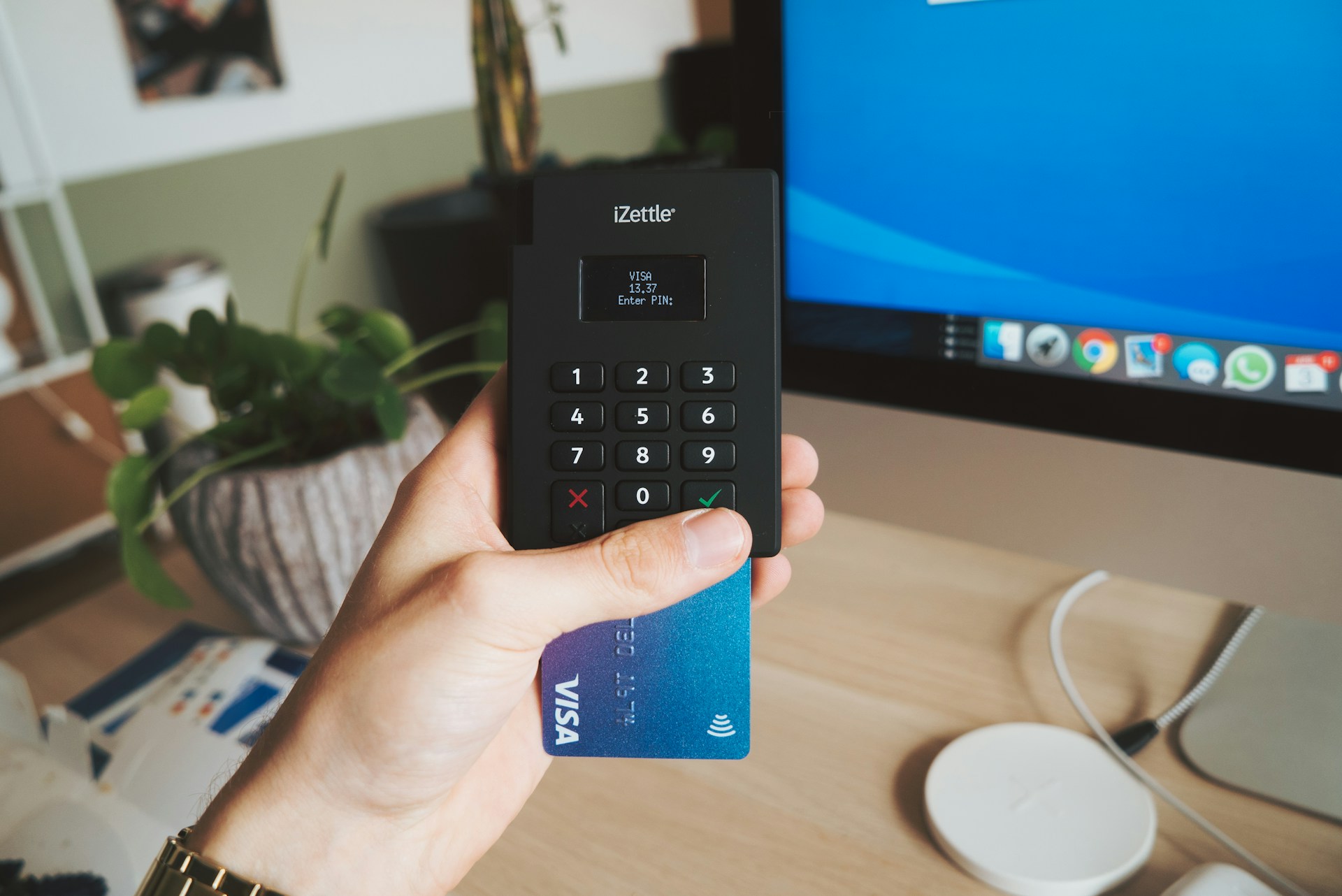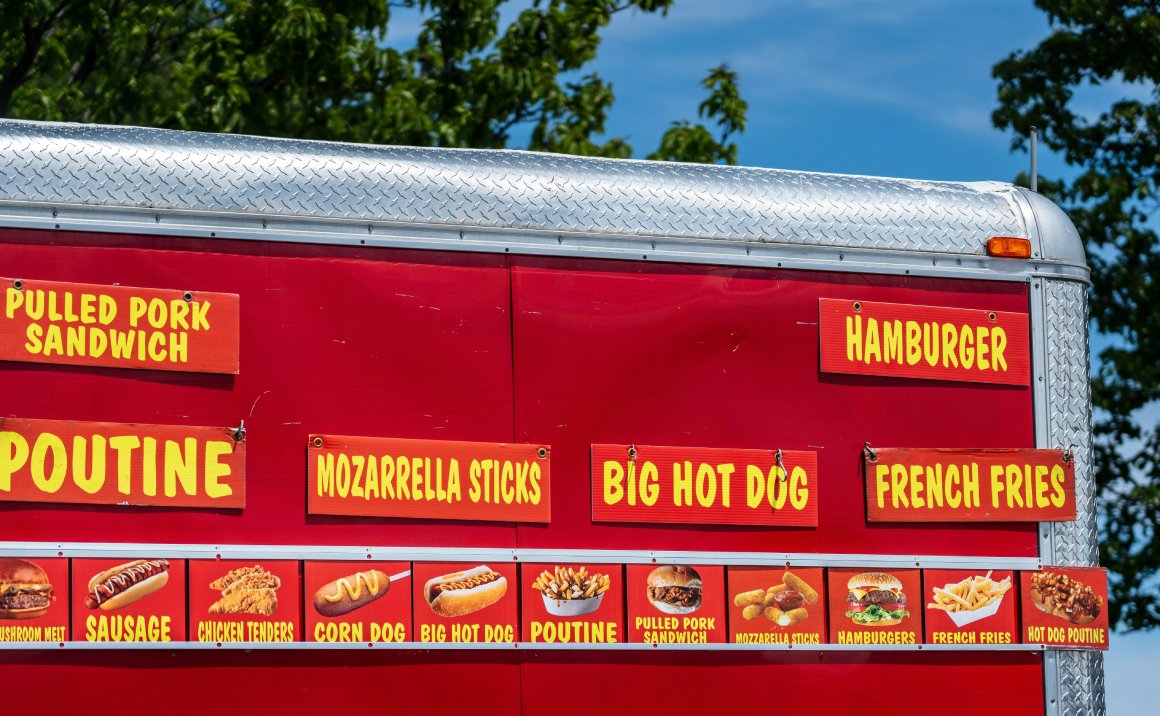
Comparing SumUp and Zettle: Which Mobile Payment Processor is Best for Your Food Truck?
This post is part of a regular series. Click here to start at the beginning.
When running a food truck, the ability to process payments quickly and efficiently is essential. You need a system that’s mobile, affordable, and easy to use—without adding unnecessary complexity to your daily operations. SumUp and Zettle are two payment processors that check those boxes, offering straightforward and cost-effective solutions designed for small businesses like food trucks.
In this post, we’ll take a closer look at how SumUp and Zettle stack up, exploring their features, pricing, hardware options, and how they might fit into your food truck’s payment strategy.
1. SumUp: A Simple, Cost-Effective Payment Processor for Food Trucks
SumUp is known for its simplicity and affordability. It provides a no-frills, easy-to-use payment system that’s ideal for food truck owners who need to process card payments quickly without dealing with complicated setups or high costs.
Key Features for Food Trucks:
- SumUp Card Reader: The heart of SumUp’s offering is its simple card reader, which accepts chip, magnetic stripe, and contactless payments. The card reader connects to your smartphone or tablet via Bluetooth, making it perfect for mobile businesses like food trucks.
Example: A taco truck uses SumUp to accept chip and contactless payments from customers. The reader is compact, easy to carry, and can be used wherever the truck sets up for the day. - Low Transaction Fees: One of the standout features of SumUp is its low, flat-rate transaction fees. SumUp charges 2.75% per transaction, with no additional fees for contactless payments or mobile wallets. This flat fee structure is straightforward and budget-friendly, making it a good fit for food trucks with smaller transactions.
Example: A burger truck processing $300 in sales during a lunch shift would pay $8.25 in transaction fees with SumUp, keeping costs predictable and easy to manage. - No Monthly Fees or Contracts: Like many other mobile payment processors, SumUp doesn’t charge any monthly fees or require long-term contracts. This makes it ideal for food truck operators who may have irregular or seasonal business schedules.
Example: A smoothie truck that only operates during summer events uses SumUp without worrying about paying fees during the off-season.
2. Zettle: A Mobile Payment Processor from PayPal
Zettle, formerly known as iZettle, is a PayPal-owned payment processor designed for small businesses. With Zettle, food truck operators can process card payments quickly and securely using mobile devices, while benefiting from PayPal’s trusted reputation and additional business tools.
Key Features for Food Trucks:
- Zettle Reader 2: The Zettle Reader 2 is a compact, wireless card reader that accepts chip, contactless, and magnetic stripe payments. It connects to your smartphone or tablet via Bluetooth, allowing food truck operators to take payments on the go, no matter where the truck is parked.
Example: A BBQ truck uses the Zettle Reader 2 to accept payments from customers at an outdoor festival. The wireless design ensures that payments can be processed smoothly, even when space is tight. - Integration with PayPal: One of Zettle’s key advantages is its seamless integration with PayPal, allowing you to manage both in-person and online payments through the same platform. This is especially helpful for food trucks that also sell merchandise or take online orders.
Example: A taco truck that sells t-shirts and branded hot sauces online uses Zettle and PayPal to manage both in-person food sales and online merchandise transactions in one place. - Simple Fees: Zettle charges a 2.29% + 9¢ transaction fee for card payments. This fee structure is competitive, especially for food trucks with lower transaction volumes or those operating on tight margins.
Example: A burger truck processing a $10 sale would pay about 32¢ in transaction fees with Zettle. - Additional Business Tools: As part of PayPal, Zettle offers access to PayPal’s broader range of business tools, including invoicing, recurring payments, and online payment options. This makes Zettle a good choice for food truck operators who also want to expand into e-commerce or manage more complex business needs.
3. Hardware Options: Mobility and Simplicity
Both SumUp and Zettle focus on offering simple, mobile-friendly hardware that’s perfect for food trucks. Here’s a breakdown of their offerings:
SumUp Hardware:
- SumUp Air Reader: This lightweight, Bluetooth-enabled card reader accepts chip, contactless, and magnetic stripe payments. It’s designed for food truck owners who need a portable solution that’s easy to use and doesn’t take up much space.
Example: A taco truck with limited counter space uses the SumUp Air Reader to process payments quickly without needing bulky equipment.
Zettle Hardware:
- Zettle Reader 2: Like SumUp, Zettle offers a compact card reader that supports chip, contactless, and magnetic stripe payments. The Zettle Reader 2 is known for its sleek design and fast transaction processing times, making it a great choice for busy food truck environments.
Example: A smoothie truck operating at a crowded farmers’ market uses the Zettle Reader 2 to process payments quickly, ensuring the line keeps moving.
Both SumUp and Zettle readers are easy to set up, require minimal space, and are designed with mobile businesses in mind. Neither requires additional hardware beyond the card reader and your smartphone or tablet, making them both affordable and portable solutions for food trucks.
4. Pricing and Fees: Keeping Costs Low for Food Trucks
When it comes to payment processing fees, both SumUp and Zettle offer competitive rates that can keep your costs manageable as a food truck operator. Here’s how they compare:
- SumUp’s Flat Fees: SumUp charges 2.75% per transaction, with no monthly fees or hidden costs. This flat rate makes it easy to predict how much you’ll pay in fees, especially if your food truck has consistent sales volumes.
Example: A taco truck processing $1,000 in sales during a weekend event would pay $27.50 in fees using SumUp. - Zettle’s Competitive Fees: Zettle charges 2.29% + 9¢ per transaction, which is slightly lower than SumUp’s flat rate. This small difference can add up, especially for food trucks that handle large numbers of smaller transactions.
Example: A smoothie truck selling $500 worth of smoothies would pay about $12.20 in fees using Zettle, slightly less than SumUp’s rate.
Both SumUp and Zettle are more affordable than many traditional payment processors, making them excellent choices for food trucks looking to keep costs low.
5. Limitations of SumUp and Zettle
While SumUp and Zettle are great for simple payment processing, there are a few limitations to consider:
SumUp’s Limitations:
- Limited Business Tools: SumUp is a straightforward payment processor, but it doesn’t offer many of the advanced features that larger POS systems provide, such as inventory management or sales reporting. Food trucks that need more robust tools may find SumUp lacking in this area.
Example: A taco truck with a complex menu and daily inventory changes might find SumUp too limited, opting for a more comprehensive system like Toast.
Zettle’s Limitations:
- Not as Widely Recognized as PayPal: While Zettle is owned by PayPal, it doesn’t have the same level of brand recognition. Some customers may not be familiar with Zettle and could prefer paying through more well-known systems like Square or PayPal.
Example: A BBQ truck at a large event might find that customers expect to see Square or PayPal logos for payments, leading to potential confusion when using Zettle.
Conclusion: Is SumUp or Zettle the Right Fit for Your Food Truck?
If you’re looking for a simple, affordable, and mobile-friendly payment processor, both SumUp and Zettle offer excellent solutions for food trucks. With low transaction fees, easy-to-use hardware, and minimal setup requirements, these systems are ideal for food trucks that need to process payments quickly without investing in complex POS systems.
SumUp is a great choice for food truck operators who prioritize simplicity and low costs, while Zettle’s integration with PayPal makes it a good option for trucks that also sell online or want access to additional business tools. Ultimately, the right choice for your food truck depends on your specific needs—whether you’re looking for basic payment processing or a more comprehensive solution that can grow with your business.Stay tuned for the final post in our series, where we’ll recommend the best overall payment processor for food trucks and explain why Square might just be the perfect fit!
This post is part of a regular series. Please use these links to view the rest of the series in order.
Boosting Repeat Business With Loyalty Programs and Relationship Building
How to Build Customer Loyalty and Increase Repeat Business for Your Food Truck Attracting new…
Using Customer Feedback to Improve Your Food Truck
How to Leverage Customer Feedback to Boost Your Food Truck’s Success Customer feedback is one…
Budgeting for Your Food Truck – How to Manage Expenses and Maximize Profit
Mastering Your Food Truck’s Budget: A Guide to Managing Expenses and Maximizing Profit Budgeting is…




